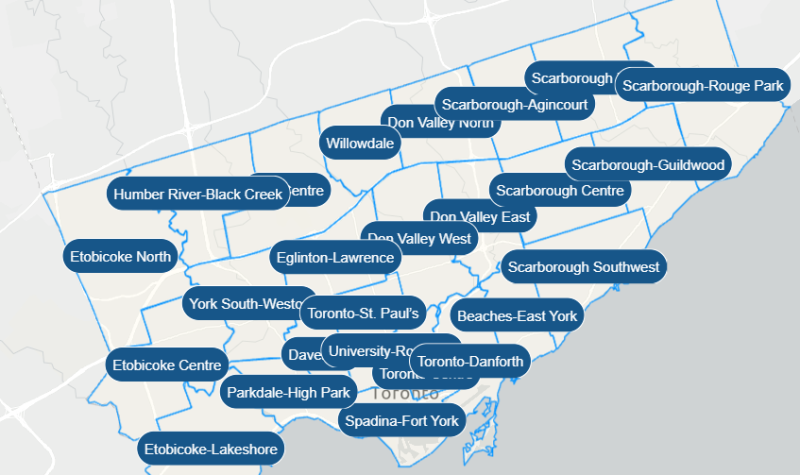The Supreme Court of Canada ruled that Bill 5 – the Better Local Government Act, which reduced Toronto’s city councillors from 47 to 25, is constitutional, according to a recent report.
It was a 5 to 4 decision, and it confirms Toronto’s current 25 wards will stand, based on the 2018 municipal election.
The ruling dismisses the City of Toronto’s appeal, following Ontario Premier Doug Ford’s decision to slash the number of wards in October 2018.
Prior to Ford’s decision, ward candidates seeking re-election filed for nomination in May 2018. This was based on the original 47-ward structure. Following the ruling, the City of Toronto released a media statement:
“The legislation was introduced “without notice to the City, candidates or electors,” the City stated in its factum to the Court on the constitutionality of the provincial legislation. “It was directed solely at Toronto and no other municipality. The result was widespread disruption of the Election and confusion among candidates and voters alike.
"The City’s appeal raised questions about the Charter’s guarantee of freedom of expression, the scope of unwritten constitutional principles and whether municipal electors are entitled to effective representation. The City submitted 'that a truly democratic election — at a minimum, and among other things — is free from significant mid-election interference and provides electors with the right to effective representation.'
Ford’s decision was originally overturned by the Superior court of Justice in 2018.
Ford used the notwithstanding clause to introduce the bill, despite its ramifications on the Charter of Rights and Freedoms.
The notwithstanding clause allows a leader in power to override rulings and let parliament or provincial legislatures temporarily override certain portions of the Charter. The clause is section 33 in the Charter.
Ford is the first Ontario Premier to use the notwithstanding clause. The decision was criticized by multiple Toronto politicians including Mayor John Tory. Tory was a strong opponent against the seat reductions and the use of the notwithstanding clause.
In a statement following the Supreme Court ruling, Tory wrote:
"I want to thank the Supreme Court of Canada for its careful and thorough consideration of the City's appeal...I disagreed with the way the province went about changing the size of City Council in the middle of the 2018 election and as Mayor together with City Council we have made that very clear all the way to the highest court."
Following Ford’s bill, the 2018 Toronto municipal election saw several wards combined and realignments of communities to accommodate the reduced seat numbers. There were also several name changes for these wards.
More details to follow.
Listen to the CJRU news update here:


